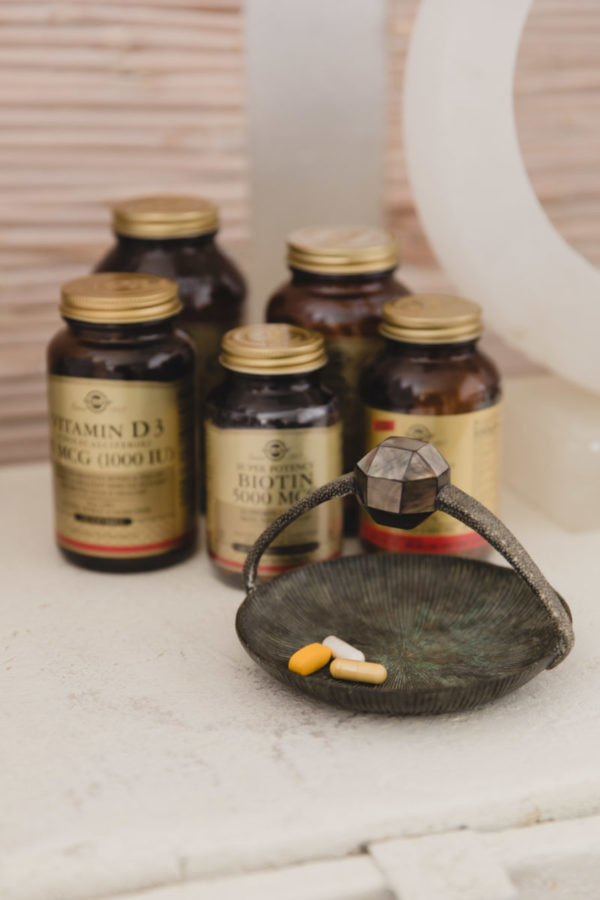Understanding Common Symptoms
Menopause is a natural stage in a woman’s life, usually occurring between the ages of 45 and 55, when the body undergoes significant hormonal changes. As your body transitions through menopause, you may notice a variety of menopausal symptoms that can affect your daily life. While every woman’s experience is unique, there are some common symptoms that most women encounter during this time. The most common symptoms include hot flashes, hot flushes, and night sweats.
Hot flashes and night sweats, also known as hot flushes, are among the most well-known symptoms of menopause, often causing sudden feelings of heat and discomfort. A hot flash is a vasomotor symptom characterized by a sudden feeling of heat, flushing, sweating, and sometimes rapid heartbeat or chills. Certain triggers, such as spicy foods or stress, can make hot flashes worse. Many women also experience changes in their menstrual periods, such as irregular cycles or heavier or lighter bleeding before their periods stop completely. It is important to track your last period and note any vaginal bleeding after your periods have stopped, as this should be discussed with a healthcare professional. Vaginal dryness is another frequent symptom, which can lead to discomfort during intimacy and daily activities.
Mood swings, low mood, and increased anxiety are also common symptoms, as hormonal shifts can impact your mental wellbeing. These are examples of mental health symptoms and mood changes that many women experience during menopause. Some women notice changes in their body, such as weight gain or a shift in where their body stores fat. Sleep problems, including trouble falling or staying asleep, can also become more frequent during menopause. Other symptoms, such as joint pain or changes in libido, may also occur.
Understanding these symptoms of menopause is the first step toward managing them effectively. By recognizing what your body is going through, you can take proactive steps to support your health and wellbeing during the menopause transition. Remember, you are not alone—millions of women experience menopause, and being informed can help you navigate this new chapter with confidence and self care.
9 Self Care Ways to Take Care of Yourself During Menopause
Menopause is the beginning of a potentially exciting, fulfilling time in your life… even if it doesn’t feel like it. Due to dramatic hormone changes that take place during perimenopause (and a very different baseline after), it can be a challenge to fully appreciate it in the midst of all the adjustments you have to deal with. Making lifestyle changes is an important way to manage menopause symptoms and improve your overall comfort. Mood swings, hot flashes, and night sweats are common symptoms (hot flashes and night sweats are often referred to as vasomotor symptoms), but there are also strategies to reduce hot flashes and make this transition easier. There are also more subtle or other symptoms. These can include changes in body composition, energy, and appetite. Full stop: Menopause is a major life change. There’s no need to suffer unnecessarily, though. Here are 9 ways to take care of yourself during Menopause.
1. Prioritize Exercise
Movement is essential during menopause. Regular exercise is especially important for menopausal health, as it helps manage symptoms and supports overall well-being. I personally enjoy Yoga! You may opt for intense training or more meditative, slower exercise (think Tai chi). Whatever you decide, be sure it contains cardiovascular, strengthening, and stretching components and is effective without stressing you out. For best results, exercise regularly to maximize the benefits. The benefits are numerous — including a boost of growth hormones and endorphins that’ll make you happier and calmer. Regular exercise can also help prevent bone loss during menopause. Additionally, staying active helps maintain a healthy weight, which can improve overall health and reduce menopause symptoms such as hot flushes, night sweats, and osteoporosis risk.
2. Consider a Supplement
Carefully chosen supplements can help stabilize your mood, increase heart/brain and bone health, decrease inflammation, and balance hormones. Vitamin D and vitamin D supplements are especially important for supporting bone strength during menopause. Calcium supplements may also be beneficial for maintaining strong bones and reducing the risk of osteoporosis during menopause. These supplements can help prevent weak bones and reduce the risk of osteoporosis. Check with a trusted health practitioner to get a read on your needs in addition to monitoring your own health status. Try an online search for a good hormone balance supplement that can address common menopausal symptoms and help you feel more serene and energetic. You may also want to discuss hormonal treatment options, such as creams, gels, or vaginal rings, and the possibility of taking HRT with your healthcare provider to manage menopause symptoms. Over-the-counter moisturizers and lubricants can help ease vaginal dryness, and hormone replacement therapy or other medical treatments may also be recommended by a healthcare professional. Additionally, non hormonal treatments—including lifestyle changes, self-care strategies, and specific non-hormonal medical treatments—are available for those who cannot or prefer not to use HRT.
3. Prioritize Sleep
This is an area where you absolutely shouldn’t skimp: Having healthy sleep habits (also known as good sleep hygiene) is vitally important for detoxification and hormone balance. It can be more challenging during perimenopause and menopause to get the recommended 7-9 hours per night, so create rhythms that allow your body to relax as you get close to bedtime. Managing stress is also crucial, as stress can significantly impact sleep quality during menopause. Avoid electronics (or at least blue light) an hour before turning in, avoid caffeine after lunch, and be sure your bedroom is completely dark and on the cooler side. Keeping your bedroom cool can help manage hot flashes and night sweats, making it easier to stay comfortable and sleep well during menopause.
4. Stop Smoking and Limit Your Drinking
The downsides of smoking multiply during menopause; the nicotine and toxins are especially harmful. Quit — get help if you need it — there’s much more assistance and support available than ten or twenty years ago. Drinking’s also something to keep tabs on around menopause. Monitoring your alcohol consumption is important, as excessive intake can worsen menopausal symptoms and increase health risks. It not only can dehydrate you and interfere with sleep, but excess consumption can lead to an increased likelihood of heart problems and cancer. Both smoking and drinking can increase your risk of various health problems, and when combined with hormone replacement therapy (HRT), these risks may include a higher risk of breast cancer and blood clots. Women with a high risk of breast cancer or blood clots should consult their doctor before starting HRT, as these are potential risks associated with hormone therapy. Making healthy choices is important to reduce the risk of health problems and complications during menopause. Drink moderately or not at all.
5. Adjust Your Diet
Want to feel better and decrease your menopausal symptoms? Following a healthy diet can help manage menopause symptoms and support your overall well-being. Aim for a balanced diet that includes plenty of fruits, vegetables, whole grains, and lean proteins. Whole grains are especially beneficial for providing essential nutrients and supporting energy levels. Incorporate lean proteins such as fish and beans to help manage symptoms and maintain muscle mass. Low fat milk is a great source of calcium and can help support bone health during menopause. Eat a variety of nutritious foods to ensure you get all the vitamins and minerals your body needs. Making these dietary changes can also assist with losing weight, which may further reduce menopause symptoms.
Try some foods that contain phytoestrogens; they’re compounds that are plant-based and bear a similarity to human sex hormones. Flaxseed, celery, parsley, fennel, sesame seeds, and miso are particularly potent sources of phytoestrogens.
6. Enjoy Your Veggies
One of the most important things to take care of before and during menopause is your level of inflammation. Avoiding spicy food is also recommended, as it can trigger hot flashes and worsen menopausal symptoms. There’s nothing quite like eating vegetables to help keep your inflammation in check. Superfood vegetables and fruits (think broccoli, cruciferous vegetables such as kale and Brussels sprouts, blueberries, onions, and pomegranates) are especially effective for this purpose. Decreasing inflammation has a host of benefits, including weight stabilization and more elastic, moist skin and connective tissue.
7. Enjoy Healthy Fats
Eating healthy fats is pleasurable, filling, and good for your health. Go for the Omega-3 types and MCTs (medium-chain triglycerides) as your main fat sources. Your heart and brain will benefit, and your level of inflammation will decrease. Coconut oil is a great source of healthy fats, as are fatty wild-caught fish like salmon and tuna. This is another area where getting a supplement can be helpful to help ensure you’re ingesting enough healthy fats.
8. Stay Connected
It’s always important to cultivate life-affirming relationships with supportive friends and family; and during menopause, it’s especially crucial. Connection with other women experiencing similar life changes helps you to feel not so alone, and staying involved with your community decreases stressful isolation. Your family situation might be changing as you move through midlife; don’t hesitate to reach out for professional support if you need it. Talking therapy can be an effective option for managing mood swings and anxiety during menopause. You can also consult your local gp practice for advice, personalized treatment options, and referrals related to menopause symptoms. It might also be a time to re-calibrate all of your relationships so you can establish and maintain healthy intimacy and appropriate boundaries.
9. Stay Mindful
Connection is key — and so is solitude and paying attention to your inner world and what matters to you most. Menopause can be a time of profound growth and deepening of your spiritual capacity if you provide yourself with enough time, space, and self-care to go within. What you do during this time will vary; it might be gardening, making art or music, dancing, meditating, praying, or serving others selflessly. You might revisit beloved feelings and moods of your childhood as you allow what’s unnecessary to fall away, leaving space for wonder and thankfulness.
Taking care of yourself during Menopause is a holistic process that encompasses body, mind, emotions, and spirit. Keep these ideas in mind as you consider your options and make healthy choices.
How do you take care of yourself during life and body changes? We would love to hear from you in the comments at the bottom of this page.
 If you enjoyed this article, please subscribe. Each daily story will be delivered straight to your inbox.
If you enjoyed this article, please subscribe. Each daily story will be delivered straight to your inbox.
Want to Learn How to Start a Blog?


I have to laugh sarcastically, because I went through what my grandma called “The Change” at an awkward time. Doctors began calling it peri-menopause about 5 years before mine started. Before that, peri-menopause WAS The Change. “So you’re not quite there yet,” said my OB/GYN. Then, about 4 years later, “OK, you sailed through pretty well. You’re done.” Wait. Where’s MY fainting couch, tiptoeing family, and quiet cups of tea? I’m DONE, move on? Hahaha! However, true. Take your vitamins, sleep, exercise, and, above all, get those quiet cups of tea. It all worked to help me through The Change, and through the change for The Change.
Thank you, Melody. Love your comment. Happy belated New Year. Warmly, Honey